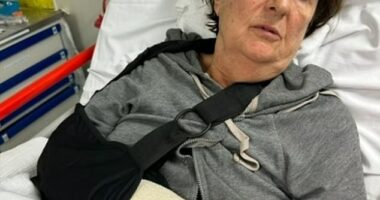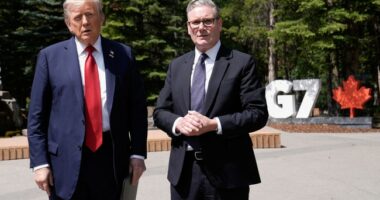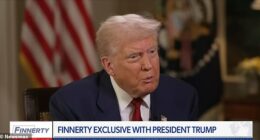Of the top five popular medical tests — full-body MRI, the multicancer early detection test, and tests for antimullerian hormone, gut microbiome and testosterone — 87.1 per cent of the accounts studied mentioned the benefits of the test while only 14.7 per cent noted potential harms.

Only 6.4 per cent of those also included scientific evidence and only six per cent mentioned the risk of overdiagnosis or overtreatment.
Research also found 50.7 per cent encouraged viewers to take action and get the test while 68 per cent had financial interests.
“They are being promoted under the guise of early screening, as a way to take control of your own health,” the University of Sydney’s Dr Brooke Nickel said.
“The problem is they are unnecessary for most people and, in some cases, the science backing their efficacy is shaky.
“These tests carry the potential for healthy people to receive unnecessary diagnoses, which could lead to unnecessary medical treatments or impact mental health.”
Researchers pointed to the antimullerian hormone test, also known as the “egg timer test”, which is heavily marketed towards women as a way of measuring fertility.
However, according to the researchers, the test is not considered reliable by experts.
The concern is that a low result without the context of a specific medical issue may drive women to unnecessary and costly fertility interventions.
“One of the underlying themes being used by influencers promoting these tests is that knowledge is power, but most information is cherry-picked,” Nickel said.
“When it comes to health, getting the full picture is so important, and half-truths are often lies.”
Bond University’s Dr Ray Moynihan said the findings suggest that social media is an “open sewer of medical misinformation”.
“This is a public health crisis that exacerbates overdiagnosis and threatens the sustainability of health systems,” he said.
The Royal Australian College of General Practitioners (RACGP) President Dr Michael Wright urged Australians not to rely on social media for healthcare advice, as some influencers may be spreading information that is unhelpful or even dangerous.
“So, please provide a critical lens to anything you see on social media,” he said.
“Even better, why not book an appointment with a GP who knows you and your history, and discuss any health issues on your mind – including any mental health concerns.
“We are trained professionals with your health and wellbeing front of mind.”
A TikTok spokesperson said harmful health misinformation is not allowed on the platform.
“Australians should always speak to their GP in the first instance for health advice and we encourage anyone who sees a video or account they believe shouldn’t be on TikTok to report it,” the spokesperson said.
9news.com.au understands videos featuring unproven recommendations to treat mild illnesses are ineligible for the app’s For You feed.
Meta did not respond to a request for comment before publication.





